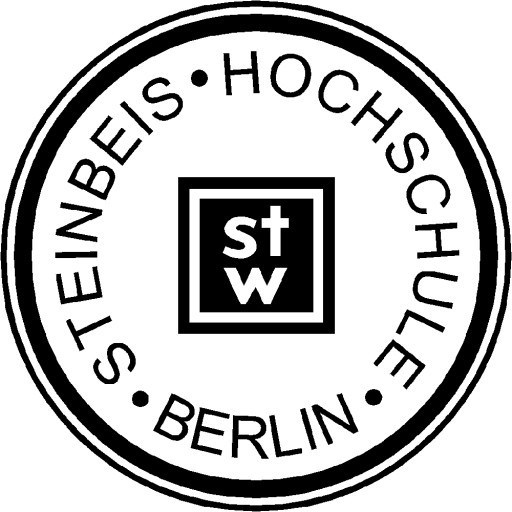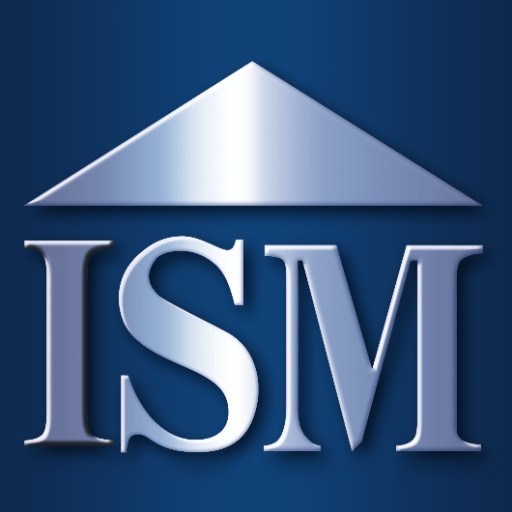The degree programme International Food Business and Consumer Studies is characterised by a multidisciplinary approach at the interface between agriculture, food business, and consumer science within an international context. Our goal is to qualify students to manage complex processes along the food chain in order to develop and market food products and related services according to the needs of different consumer groups.
During the first semester, students take two elective bridging modules. These modules are designed to compensate for different levels of students' background knowledge and skills.
Compulsory modules include the following:
Intercultural Communication and Management introduces the key principles of intercultural communication. This includes a firm understanding of one's own cultural determination, sensitivity and appreciation for cultural differences, and a keen awareness of synergetic potentials in intercultural contexts.
International Legislation on Consumer Protection and Food introduces the key institutions and related administrative bodies in the EU, the labelling of food products, the legislation for production, distribution or sale of novel or functional food, risk management and risk communication, the barriers to the free flow of goods, and the national food control systems in Europe.
Marketing Research provides a framework for the understanding of tasks and management of marketing research; the methods of data collection, data analysis, and development prognoses; and the presentation of market research results for decision support.
Project Work provides the opportunity to develop advanced skills in managing research and development projects. In cooperation with external partners, students work on interdisciplinary problems relevant to international food economics and consumer studies.
Food Chain Management addresses the product flow in the food supply chain, business processes in the food industry, conception of risk and product safety, traceability, and implementation.
Recent Developments in Food and Nutritional Sciences covers recent scientific results on food constituents and processing, their physiological effects within various nutritional patterns, and their influence on the quality of raw material and final food products.
Consumer Science and Sustainable Consumption facilitates an understanding of the social and psychological impact on consumer behaviour, the recent developments in consumption, and the deduction of future trends with an emphasis on sustainability.
Product Development and Intercultural Marketing explores stages of product development, quality function deployment, processing and product formulations, food chemistry, manufacturing, food regulations, food additives, product testing, shelf life studies, and factors affecting shelf life.
From a catalogue of management modules such as Supply Chain Management, Food Quality and Organic Food Processing, Information Systems for the Food Industry, Management of Innovations in the Food Industry, Strategic Management, or International Management, three elective modules have to be chosen. A choice of pertinent elective modules is provided in the last study year in order to allow the students to develop their individual profiles.
The Master's thesis is an individual research study. It enables students to generate and publish scientific data independently. Students work on problems related to international food economics and consumer science, usually in cooperation with external partners in this field.
During the first semester, students take two elective bridging modules. These modules are designed to compensate for different levels of students' background knowledge and skills.
Compulsory modules include the following:
Intercultural Communication and Management introduces the key principles of intercultural communication. This includes a firm understanding of one's own cultural determination, sensitivity and appreciation for cultural differences, and a keen awareness of synergetic potentials in intercultural contexts.
International Legislation on Consumer Protection and Food introduces the key institutions and related administrative bodies in the EU, the labelling of food products, the legislation for production, distribution or sale of novel or functional food, risk management and risk communication, the barriers to the free flow of goods, and the national food control systems in Europe.
Marketing Research provides a framework for the understanding of tasks and management of marketing research; the methods of data collection, data analysis, and development prognoses; and the presentation of market research results for decision support.
Project Work provides the opportunity to develop advanced skills in managing research and development projects. In cooperation with external partners, students work on interdisciplinary problems relevant to international food economics and consumer studies.
Food Chain Management addresses the product flow in the food supply chain, business processes in the food industry, conception of risk and product safety, traceability, and implementation.
Recent Developments in Food and Nutritional Sciences covers recent scientific results on food constituents and processing, their physiological effects within various nutritional patterns, and their influence on the quality of raw material and final food products.
Consumer Science and Sustainable Consumption facilitates an understanding of the social and psychological impact on consumer behaviour, the recent developments in consumption, and the deduction of future trends with an emphasis on sustainability.
Product Development and Intercultural Marketing explores stages of product development, quality function deployment, processing and product formulations, food chemistry, manufacturing, food regulations, food additives, product testing, shelf life studies, and factors affecting shelf life.
From a catalogue of management modules such as Supply Chain Management, Food Quality and Organic Food Processing, Information Systems for the Food Industry, Management of Innovations in the Food Industry, Strategic Management, or International Management, three elective modules have to be chosen. A choice of pertinent elective modules is provided in the last study year in order to allow the students to develop their individual profiles.
The Master's thesis is an individual research study. It enables students to generate and publish scientific data independently. Students work on problems related to international food economics and consumer science, usually in cooperation with external partners in this field.
Educational organisation
The course is held over four semesters (full-time; seven semesters part-time), starting in October. Teaching is organised on a module-credit basis and is offered over three semesters. The fourth semester is dedicated to the completion of a Master's thesis. 15 modules must be completed to finish the programme successfully. A module overview and more detailed information on all subjects are available on the website.Learning methods include lectures, workshops, seminars, practical and project work. The module Project Work includes intensive group work and teamwork activities.
Each course module is assessed individually on the quality of written or visual presentation work and on oral presentations. Assessment methods may include reports, seminar papers, written examinations, project work, visual and oral presentations, workshops, simulations, and practical exercises. The majority of assessments are based on individual assignments, but group work is also assessed.
The unique features of the programme - "short paths", traditions in project-oriented teaching and work, and individual contacts between teachers and students - create optimal conditions for excellent learning outcomes in the programme.
The Master's programme is a joint degree offered by two German universities: Fulda University of Applied Sciences (Nutritional, Food and Consumer Sciences) and Kassel University in Witzenhausen (Organic Agricultural Sciences). The main course location is Witzenhausen. Classes are regularly taught in Fulda.
Study abroad unit(s)
German students are required to earn at least 12 ECTS abroad. Students holding a first degree from a university outside Germany are not expected to spend one semester abroad.Internships
No compulsory internship - programme advisers may assist students in finding appropriate internships.Forms of assessment
Practical collaborative/group projects, written assignments, presentations, and written/oral examinationsCourse objectives
The programme qualifies students to take on responsible tasks in the food industry and related organisations active on a national and international scale. Graduates are particularly qualified to work at the "interfaces" between various cultures.In order to prepare students for this occupational field, the programme provides them with the skills needed to professionally plan, carry out, document and evaluate complex projects, especially in the fields of product quality, product development, innovation, intercultural marketing, and the management of processes, data, and accounts within food supply chains. Students are also trained in interdisciplinary work and intercultural communication focusing on cultural differences and their effects on consumer and organisational behaviour. Students also learn how to conduct scientific research in food and consumer sciences and economics. Moreover, the programme encourages students to work according to the principles of ethics and sustainability.
Language requirements
Applicants whose first language is not English should be able to demonstrate a satisfactory level of spoken and written English and provide proof of their language skills in English (C1 according the CEF or equivalent certificate). Further information can be found at http://www.hs-fulda.de/ifbc-application.Academic requirements
The programme attracts students with a wide range of backgrounds, disciplines, and nationalities. Applicants are welcome from academic disciplines in the fields of nutrition, food and consumer sciences, food technology or agricultural science. Candidates with a background in economics and related fields must possess appropriate knowledge and skills at degree standard in fields related to food and agricultural economics/business.Admission is normally open to applicants with a good undergraduate honours degree (or equivalent overseas degree from a recognised institution) with a "B (upper division) grade" average assessment on the final certificate or an average final grade of at least 2.5 on the German scale.
Enrolment fees
The enrolment fee of approx. 290 EUR entitles you to use public transport in the state of Hessen.Costs of living
Approx. 650-750 EUR per month, including enrolment fee, rent, and health insurance (80 EUR minimum per month), depending on one's living standardJob opportunities
There are good job opportunities in the nearby Rhine-Main area, which is one of the strongest employment regions in Germany. Teaching assistantships may be offered to good students.The university itself offers 60-70 student tutoring jobs at the faculties, the university library, and other departments, especially to international students.
Arrival support
- Pre-arrival assistance, i.e., visa support
- Orientation week takes place prior to the start of the programme, including pick-up service at Fulda train station and intercultural training. For students of the Master in Global Software Development, the orientation takes place at the beginning of the compulsory four-week intensive German language course prior to the start of the programme.
- Assistance with accommodation and with administrative formalities is offered.
Services and support for international students
At both universities, academic and non-academic guidance and counselling as well as a cultural programme is offered.At Fulda University of Applied Sciences:
- A buddy programme is organised by the International Office for all new international students. The German buddy introduces the new student to the social and academic sides of student life at Fulda University of Applied Sciences.
- German classes on different levels from four hours/week up to 20 hours/week ranging from beginners courses to advanced levels including DSH trainings, free of charge
- A job programme for all international students, which assists them in finding a job as student tutor at the university or outside the university at weekends or during the semester holidays
- Leisure and cultural activities, for example, film and board game nights or international dinners
- Excursions to different sights of Germany, such as Berlin, Munich, or the River Rhine
- Career service for international graduates from Fulda University of Applied Sciences seeking employment on the German labour market
Accommodation
- Accommodation service through the International Office for all non-EU students from abroad; costs for accommodation approx. 240-320 EUR for a single room in a shared flat, or 250-350 EUR for a single apartment
For more information on the International Office, international students, and housing, see: http://www.hs-fulda.de/io.






